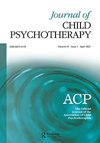创造与青少年愤怒的距离:心理治疗师对短期心理分析心理治疗中会话障碍的反应
IF 0.8
Q4 PSYCHOLOGY, CLINICAL
引用次数: 0
摘要
摘要对负面情绪的探索是精神分析心理治疗的核心原则之一,但对治疗师的愤怒可能会导致风险增加、治疗关系破裂和辍学。本研究探讨了心理治疗师在短期精神分析心理治疗(STPP)中对患者愤怒的即时反应。数据来自一项随机对照试验,该试验调查了三种类型的治疗青少年抑郁症的疗效,其中对治疗过程进行了音频记录。使用目的性抽样从四对不同的患者-治疗师夫妇中选择十个提取物,其中患者对他们的治疗师表示愤怒。这些摘录被转录并使用会话分析(CA)进行分析。分析表明,在患者表达愤怒后,心理治疗师倾向于通过回避谈话话题或提及“其他时间”(过去或未来)来制造距离。只有十分之一的摘录中,心理治疗师说出了年轻人当时对他们的愤怒。在所有其他情况下,心理治疗师对患者潜在的愤怒情绪进行了评论,但倾向于与明确和直接的愤怒表达保持距离。探讨了其可能的原因,以及临床和研究意义。本文章由计算机程序翻译,如有差异,请以英文原文为准。
Creating distance from adolescents’ anger: psychotherapists’ responses to conversational trouble in Short Term Psychoanalytic Psychotherapy
ABSTRACT The exploration of negative feelings is one of the core principles of psychoanalytic psychotherapy, yet anger experienced towards the therapist may lead to increased risk, ruptures in the therapeutic relationship and dropout. This study explored the psychotherapists’ immediate responses to patients’ anger in Short Term Psychoanalytic Psychotherapy (STPP). Data came from a randomised controlled trial investigating the efficacy of three types of therapy in the treatment of adolescent depression, in which therapy sessions were audio-recorded. Purposive sampling was used to select ten extracts from four different patient-therapist couples where patients expressed anger towards their therapist. Those extracts were transcribed and analysed using conversation analysis (CA). The analysis showed that following patients’ anger expression, psychotherapists were inclined to create distance either by moving aside from the topic of conversation, or by referring to ‘other times’, past or future. In only one out of the ten extracts did the psychotherapist name the young person’s anger towards them in the moment. In all other cases, psychotherapists commented on patients’ latent feelings of anger, but were inclined to create distance from explicit and direct anger-expressions. Possible reasons for this are explored, along with both clinical and research implications.
求助全文
通过发布文献求助,成功后即可免费获取论文全文。
去求助
来源期刊

JOURNAL OF CHILD PSYCHOTHERAPY
PSYCHOLOGY, CLINICAL-
CiteScore
0.70
自引率
50.00%
发文量
46
期刊介绍:
The Journal of Child Psychotherapy is the official journal of the Association of Child Psychotherapists, first published in 1963. It is an essential publication for all those with an interest in the theory and practice of psychoanalytic psychotherapy and work with infants, children, adolescents and their parents where there are emotional and psychological problems. The journal also deals with the applications of such theory and practice in other settings or fields The Journal is concerned with a wide spectrum of emotional and behavioural disorders. These range from the more severe conditions of autism, anorexia, depression and the traumas of emotional, physical and sexual abuse to problems such as bed wetting and soiling, eating difficulties and sleep disturbance.
 求助内容:
求助内容: 应助结果提醒方式:
应助结果提醒方式:


